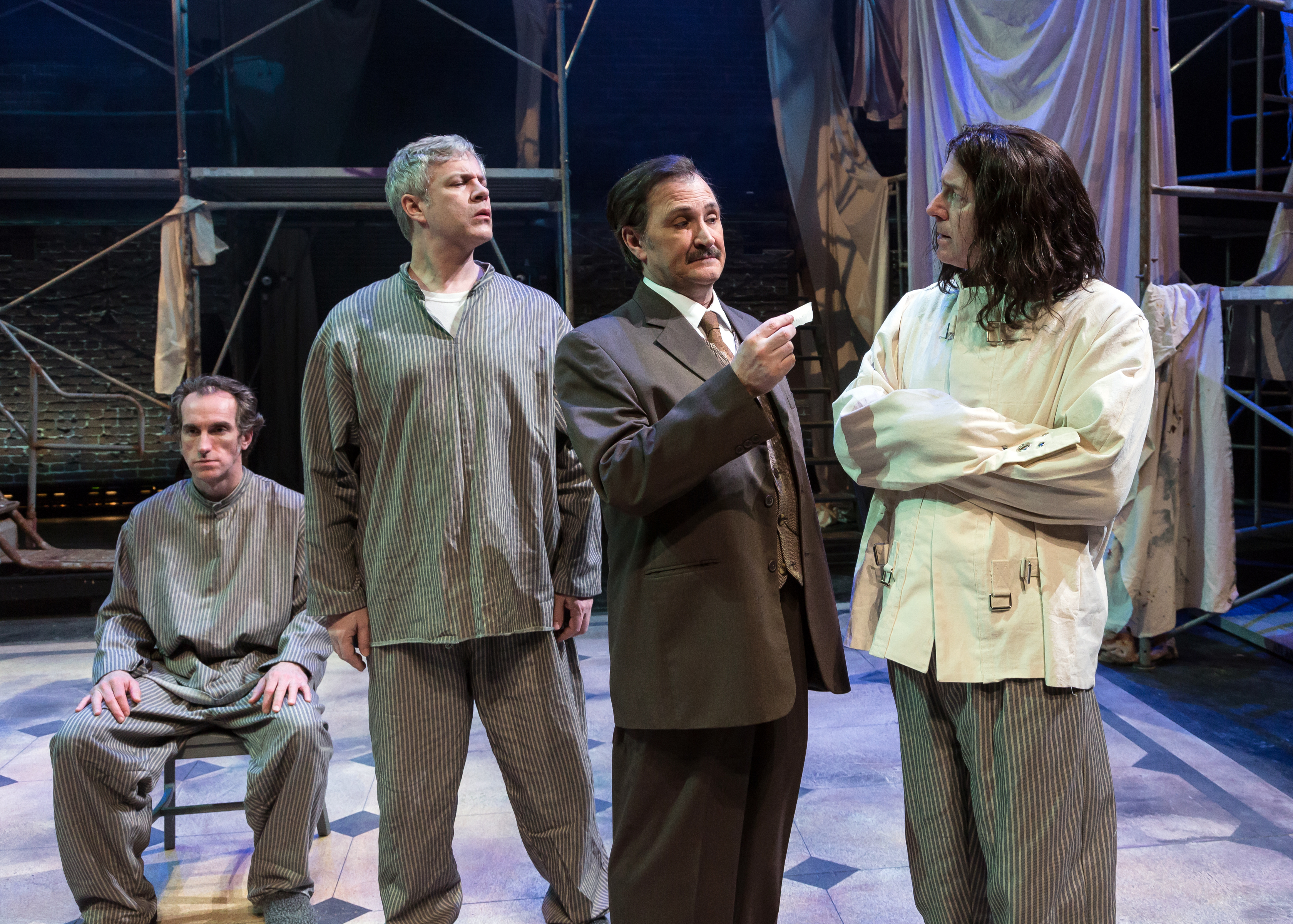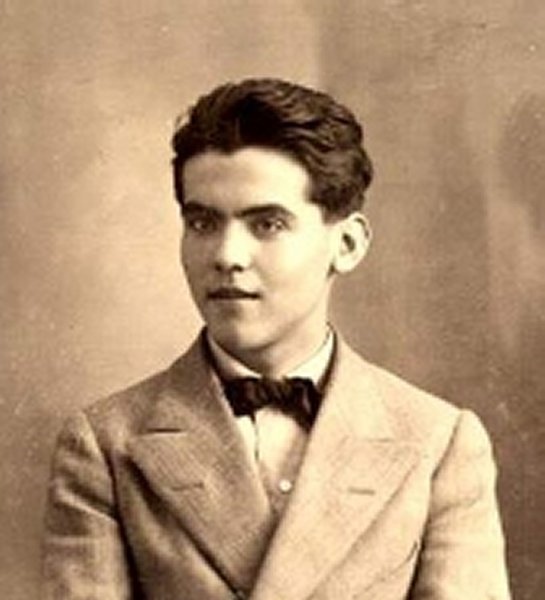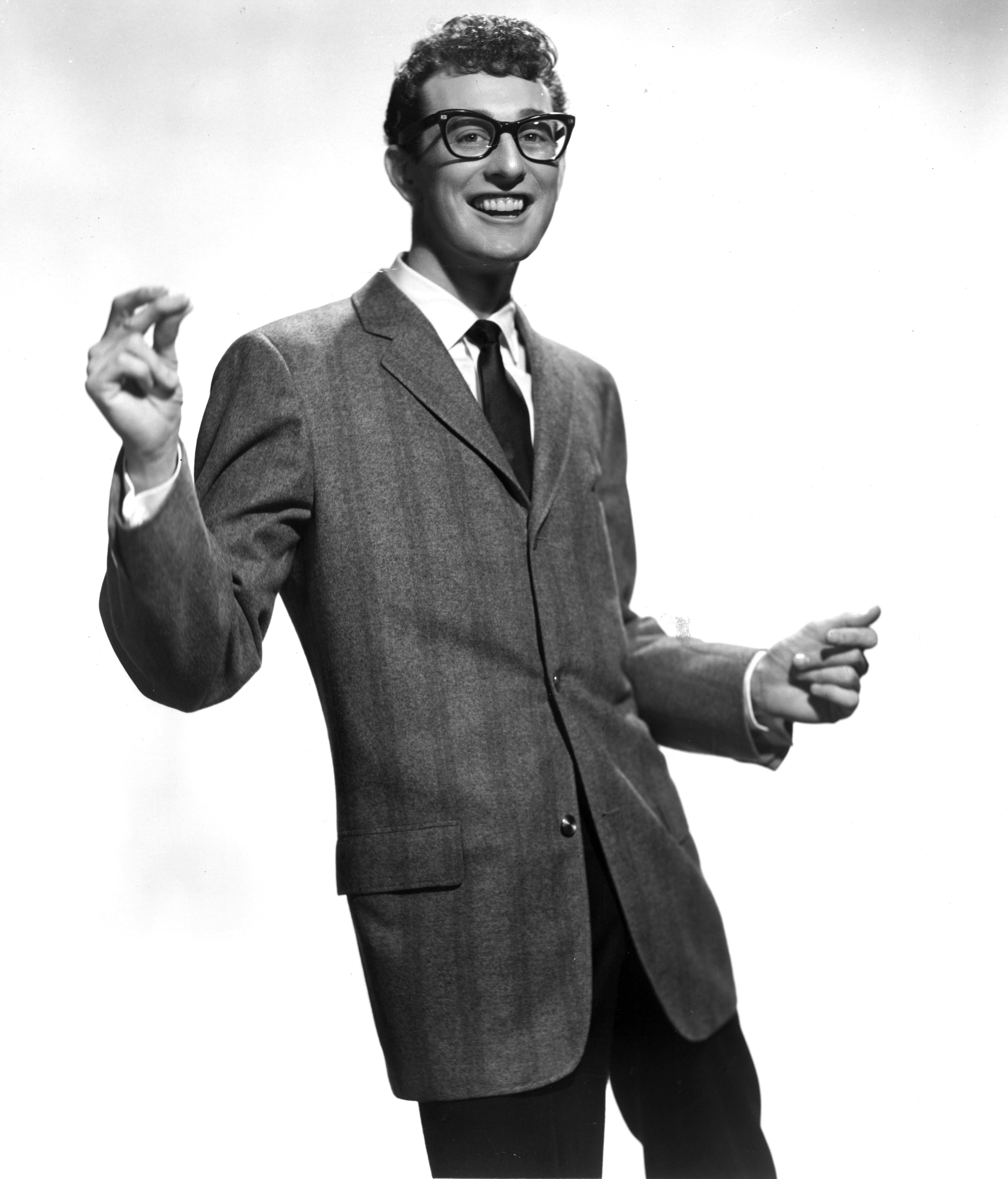March Theater Guide: We Are All ‘Multicultural’

There are strange things done in the midnight sun. Gab Cody’s multimedia play ‘Inside Passage,’ a culture-crossing journey to Alaska, appears to be one of them.
Some words fade out of the language when they become redundant, like “smartphone”: they’re all smart now. This could happen next with the word “multicultural.” In the performing arts, at least, it’s getting hard to find any culture that isn’t multi-. All types of music now evolve toward being “world music” as they spread and mingle. And Pittsburgh’s live theater schedule for March has numerous shows that involve crossing boundaries or mixing diverse influences in some way or other.
Inside Passage, by Pittsburgh playwright Gab Cody, is a multimedia riff on her real-life attempts to reconnect with her childhood roots in Alaska and the native Tlingit culture.
Wang Ramirez’s Borderline is a modern dance piece by Korean-German and Hispanic-French hip-hop artists who were inspired, in part, by ancient Greek drama.
Citizens Market is a new play about immigrants in a New York City melting-pot neighborhood. The musical Rent has a similar setting but the diversity is different; many of the characters are LGBT.
The opera Moby-Dick is adapted from Herman Melville’s genre-busting novel about a multi-ethnic whaling crew and their mad captain. Simon Stephens’s play Heisenberg, named after the famous quantum physicist, turns out to be an intergenerational rom-com-drama about a middle-aged American woman and an old Irishman.
We could go on. I Know Why the Caged Bird Sings was adapted from the memoir of that title by Maya Angelou, an African-American girl who grew up to be a multitalented world traveler.
And okay, maybe it would be stretching it to call musicals like Waitress and 42nd Street multicultural. Maybe they’re just as American as apple pie … a pie made, of course, from a fruit that isn’t American. Apples were brought here by immigrants!
But let’s not go down that rabbit hole. Let us proceed to the lineup of March shows, which are previewed in order of their run dates.
Continuing from February:
THE DROWSY CHAPERONE (musical) by Lisa Lambert, Greg Morrison, Bob Martin, and Don McKellar. Through March 3, Carnegie Mellon School of Drama.
Carnegie Mellon’s School of Drama re-opens its mainstage season with The Drowsy Chaperone. This 2006 winner of five Tony Awards is both a parody of old musicals and a tribute to them, written as a play within a play. The central character is a shy fellow who sits at home alone listening to vintage recordings of Broadway tunes from the 1920s. When he puts his favorite onto the turntable—the soundtrack of an exuberantly hokey fictional show called, well, The Drowsy Chaperone—the cast members magically appear and start performing the show. Songs and music are by Lisa Lambert and Greg Morrison; book by Bob Martin and Don McKellar. Philip Chosky Theater at Carnegie Mellon, 5000 Forbes Ave., Oakland.
HOLMES AND WATSON by Jeffrey Hatcher. Through March 4, Kinetic Theatre.

Which mental patient, if any, is Sherlock Holmes? Dr. Watson (Daryll Heysham) quizzes hairy Holmes (David Whalen), while silent Holmes (Gregory Johnstone, L) and rationally alert Holmes (Darren Eliker) hover.
Holmes and Watson, a new play by Sherlock re-inventor Jeffrey Hatcher, is set after the detective’s disappearance and presumed death in Arthur Conan Doyle’s “The Final Problem.” Sherlock impostors have turned up and been easily exposed. Still, Dr. Watson visits a spooky insane asylum to investigate a strange report: There are three new patients claiming to be Holmes, and it’s possible that one may be legit. Holmes and Watson has a credibility problem—wouldn’t Watson know the real Holmes instantly?—but it’s best to ignore that detail and enjoy the play’s nuanced mysteries and surprise ending. Kinetic Theatre kicks off its 2018 season with Holmes and Watson. For an in-depth look, see our review. At the New Hazlett Theater, 6 Allegheny Square East, North Side.
THE BODYGUARD (musical) by Alexander Dinelaris, from the movie. Feb. 27 – Mar. 4, touring company at Benedum Center.
Fans of the late pop singer Whitney Houston may wish to catch the U.S. touring production of The Bodyguard. This stage musical is adapted from the 1992 movie of the same title, in which Houston made her big-screen acting debut. The score includes many of her hit songs—notably, her famous cover of Dolly Parton’s “I Will Always Love You”—and the show is more than a typical jukebox musical. It’s also a suspense thriller about a singing star threatened by a mysterious stalker. A new bodyguard sets out to tighten security, but he gets tangled in the personal lives of the star and her inner circle while danger multiplies. As a movie, The Bodyguard had mixed reviews but box-office success, along with mega-sales of the soundtrack album. The musical, adapted from the film by Alexander Dinelaris, premiered in London’s West End in 2012 and has spawned several tours worldwide. The Bodyguard comes here as part of the PNC Broadway in Pittsburgh series, with R&B singer Deborah Cox in the lead role. Benedum Center, 237 7th St., Cultural District.

Federico Garcia Lorca, assassinated in 1936, wrote ‘The House of Bernarda Alba’ as his last play.
THE HOUSE OF BERNARDA ALBA by Federico Garcia Lorca. Resuming its run March 8-11, Point Park Conservatory Theatre.
Is The House of Bernarda Alba becoming a hot item? An intense drama from 1930s Spain, the play is regarded as a classic in Spanish-speaking countries, and recently it’s been revived (in English) by various companies in the U.K. and U.S. One possible factor is the surge of interest in theater that spotlights women. The House of Bernarda Alba has a sizable cast, and all the characters are women. Bernarda, a proud matron, rules like a tiger over her brood of eligible but unmarried daughters. After her husband’s death she invokes a severe tradition: eight years of mourning, which includes no socializing with men, and thus no sex. The girls rebel in a battle of wills and wits that’s sometimes comical but turns tragic. Written by Federico Garcia Lorca shortly before his own tragic death in the Spanish Civil War in 1936, Bernarda Alba is seen as a crackling inquiry into themes such as social and sexual repression. Point Park Conservatory Theatre presents The House of Bernarda Alba. Pittsburgh Playhouse, 222 Craft Ave., Oakland.
March Shows in the Entertainment Central Spotlight
INSIDE PASSAGE by Gab Cody. March 2-25, Quantum Theatre.
In Alaska, the part of the United States that we inhabit is called the Lower 48. Theater fans here see very few plays about Number 49. But Pittsburgh theater artist Gab Cody hails from Juneau, where her family lived before moving lower-ward. Juneau is in the Alaskan panhandle, longtime home of the Tlingit, who have an extremely interesting history of which totem-pole carving is only one small aspect. The aspect relating to Cody is that when young, she had Tlingit foster-siblings, with whom she then lost touch. Her new work Inside Passage—a Cody-esque multimedia production—is the story of a belated journey back, to try to reconnect. Inside Passage mixes live acting with film footage. The play explores issues of identity, belonging, and unity, and it is presented by Quantum Theatre in a Quantum-esque location: at Provident Charter School (the former North Catholic High School), 1400 Troy Hill Rd., Troy Hill.
CITIZENS MARKET by Cori Thomas. March 3-25, City Theatre.
City Theatre’s niche in the Pittsburgh theater scene is staging noteworthy plays that haven’t been seen here. Some productions are Pittsburgh premieres of plays that have won major awards or drawn attention elsewhere recently—and, some are world premieres of works by playwrights outside our area. Citizens Market, by New York-based Cori Thomas, is the latest of these. The play is set in a New York City immigrant neighborhood where the staff of a local supermarket includes Asian, Latino, Eastern European and other newcomers. It’s described as a comedy-drama that depicts the interactions of this eclectic crew as they set out to master the art of living in America. Thomas has long been drawn to writing about the immigrant experience. The daughter of a Liberian diplomat and a Brazilian woman, she was born in New York but lived in seven countries with her parents when young before returning to the United States. In 2010, City Theatre premiered Thomas’s When January Feels Like Summer, which focused on an Indian immigrant family and their African-American neighbors. Citizens Market opens the proverbial golden door wider. 1300 Bingham St., South Side.
WAITRESS (musical) by Sara Bareilles and Jessie Nelson, from Adrienne Shelly’s film. March 6-11, touring company at Benedum Center.

The ingredients are unusual but ‘Waitress’ aces the taste test for audiences nationwide.
Why is the musical Waitress so popular? An easy answer would be that lots of people have been wait staff, and they can relate, except Waitress isn’t really about the waiting profession. It deals with pies and pregnancy and strange relationships … aha, bingo! We’ve all had at least two of those three. The songs in Waitress include “Bad Idea,” “Club Knocked Up,” and “I Love You Like a Table.” Please excuse the absence of a plot summary, as it is difficult to explain how Revolutionary War re-enactors fit in. The touring production of Waitress visits Benedum Center as part of the PNC Broadway in Pittsburgh series and reservations are advised. Music and lyrics by Sara Bareilles, a six-time Grammy nominee in pop music; book by Jessie Nelson, adapted from the 2007 indie film by Adrienne Shelly. 237 7th St., Cultural District.
BORDERLINE (modern dance) by Wang Ramirez. March 7 only, presented by Pittsburgh Dance Council.
Not only does life imitate art, art imitates art. Flash back to the 1983 movie Flashdance, filmed in Pittsburgh: Young dancer nails her audition at a classical dance academy by incorporating b-boy moves that she’s seen in the street. Fiction back then, but now hip-hop has in fact infiltrated high-art dance, as seen in the work of Wang Ramirez. This Euro-based dance company is named for its principals, the female/male duo Honji Wang and Sébastien Ramirez. They’re bringing their troupe to town to perform Borderline, a feature-length show that combines breaker styling with another element: The dancers go airborne, lifted and suspended by cables from rigs up in the grid. Is this a Cirque du Soleil influence? Actually, Wang and Ramirez say they were inspired by ancient Greek drama, where such devices were used to fly gods into the action. What goes around comes around. And in Borderline, with music and sound from the French artist lacrymoboy, the results are pretty spectacular. The Wang Ramirez show is presented by Pittsburgh Dance Council. 8 p.m. Byham Theater, 101 6th St., Cultural District.
HEISENBERG by Simon Stephens. March 8 – April 8, Pittsburgh Public Theater.
“If you don’t know where you’re going, you might wind up someplace else.” That saying, attributed to the late baseball player Yogi Berra, was put into scientific form by the quantum physicist Werner Heisenberg in his Uncertainty Principle. Now you can see the theory acted out in comic-dramatic form in the play Heisenberg at Pittsburgh Public Theater. There are no Yankee catchers or German scientists in this one. Just a middle-aged American woman who impulsively kisses a 75-year-old Irishman she meets in a train station, and away they go, maybe not to where you’d think but to someplace else. Heisenberg premiered off-Broadway to much acclaim in 2015. It’s by Simon Stephens, the playwright who adapted The Curious Incident of the Dog in the Night-time for the stage. Heisenberg is reported to be equally curious and perhaps sexier; one can never be certain. O’Reilly Theater, 621 Penn Ave., Cultural District.
I KNOW WHY THE CAGED BIRD SINGS by Myra Platt and Malika Oyetimein, from Maya Angelou’s book. March 9-18, Prime Stage Theatre.

Maya Angelou, shown here at Bill Clinton’s 1992 inauguration, was a titanic figure in American culture.
Pittsburgh’s Prime Stage Theatre specializes in “bringing literature to life.” The company produces plays adapted from books, with an emphasis on books that explore social issues, and a prime example is I Know Why the Caged Bird Sings. This 1969 memoir by Maya Angelou is considered a landmark in African-American writing, women’s writing, and writing, period. Angelou—who died four years ago, at 86—was amazingly multitalented. She first made her mark as a dancer, actor, and singer. Then she became a prominent journalist, poet and prose writer, screenwriter, composer, professor, civil rights organizer, and public intellectual. Angelou did all this without a college degree, and after a chaotic upbringing. I Know Why the Caged Bird Sings describes the years of her youth—which included living in the Jim Crow South, being raped as a child, and going mute for several years as a result. The book was adapted for the stage by Myra Platt and Malika Oyetimein of the University of Washington. Prime Stage performs the play at the New Hazlett Theater, 6 Allegheny Square East, North Side.
42nd STREET (musical) by Harry Warren, Al Dubin, Michael Stewart, and Mark Bramble, from Bradford Ropes’s novel and the 1933 movie. March 15-25, Point Park Conservatory Theatre.
If you’re into New York City lore and show-biz nostalgia, 42nd Street is one of those iconic streets. Slicing through the bright lights of mid-Manhattan, it will take you from Grand Central Station over to Times Square and beyond, dancing across the Broadway theater district as it goes—and the whole aura makes you want to put on a top hat and drink champagne till dawn, right? That’s what the legendary producer David Merrick figured when he opened the musical 42nd Street on Broadway in 1980. The stage show is based on a 1933 movie of the same title, the kind that laid on the glitz and glamor to cheer up Depression-era audiences. It has a plot about a plucky chorus girl who gets her big break and finds stardom. It’s loaded with razzle-dazzle song-and-dance numbers from the Thirties. 42nd Street packed ‘em in and won a Tony for Best Musical. And now, here in Pittsburgh, Point Park Conservatory Theatre figures today’s audiences need a shot of that old-time pick-me-up. They’re doing 42nd Street at Pittsburgh Playhouse, 222 Craft Ave., Oakland.
MOBY-DICK (opera) by Jake Heggie and Gene Scheer, from Herman Melville’s novel. March 17-25, Pittsburgh Opera.
When epic novels are adapted for the stage or screen, radical surgery is required. For Les Miz, the richly intertwined stories in Victor Hugo’s book had to be pruned back so much that it’s a wonder the musical even worked, let alone became a hit. Pittsburgh Opera is presenting the operatic version of Moby-Dick, which makes the cut (literally) in another way. Herman Melville’s novel has a core drama—Captain Ahab’s pursuit of the white whale—running through oceans of other stuff, such as essays about whales and sea life, and side stories full of ironic humor. The other stuff is spellbinding to read but Ahab’s mad quest can storm ahead without most of it. Moby-Dick the opera takes that route and, of course, cranks up the intensity by adding a proven emotion-enhancer: opera music. Composer Jake Heggie and librettist Gene Scheer premiered Moby-Dick at Dallas Opera in 2010. The production you’ll see here was co-produced by Pittsburgh Opera and Utah Opera. Ahab is tenor Roger Honeywell, who reportedly scorched the rafters with his performance in Salt Lake City earlier this year. The cast includes dancers from Pittsburgh’s Attack Theatre. Sound and fury aplenty, mates. Benedum Center, 237 7th St., Cultural District.
BUDDY—THE BUDDY HOLLY STORY (jukebox musical) by Alan Janes. March 25 only, touring company at The Palace Theatre.

In a short time, Buddy Holly made a huge imprint on rock music, and loved every minute.
The Palace Theatre is a living museum of rock and pop music. It’s a tour stop for many vintage big-name acts, and now The Palace hosts a deep dive into rock history: the touring production of Buddy—The Buddy Holly Story. The musical traces Holly’s dynamic but too-brief career, depicting how the Texas-born prodigy helped to shape rock as we know it, up to his death at 23 in the 1959 plane crash that also killed J.P. “The Big Bopper” Richardson Jr. and Ritchie Valens. The songs in Buddy are a cavalcade of ‘50s hits, from Holly’s “Peggy Sue” and “Not Fade Away” (later covered by The Grateful Dead) to The Bopper’s ”Chantilly Lace.”
Also, Buddy—The Buddy Holly Story is itself historical. Scripted by British writer Alan Janes, it premiered in 1989 in London—not surprising, since Holly was a major influence on Brit rockers including The Beatles—and the show is now considered the first jukebox musical, i.e., one built around already-recorded songs. So if you’ve enjoyed Jersey Boys or We Will Rock You, give a tip o’ the hat to the show at The Palace. 7 p.m. 22 W. Otterman St., Greensburg.
RENT (musical) by Jonathan Larson. March 27 – April 1, touring company at Heinz Hall.
Not much advance promo needed here. Rent is one of the hottest musicals of modern times. The show’s 20th Anniversary Tour is booked into Heinz Hall, where seats have been going fast and early. A brief primer, for those not familiar with Rent: It was inspired by (and is partly adapted from) Puccini’s lively-but-tragic opera La Boheme, about starving artists and their friends in Paris during the 1800s. The musical is set in New York in the late 1980s, with characters who include a struggling filmmaker, a rock singer, a stripper, and a drag queen. Many characters are HIV-positive or have AIDS, and the spirit of living fully in the face of difficulties and death is a major theme. The writer/composer of Rent, Jonathan Larson, died of a rare heart condition the night before the 1996 premiere. Rent won the ’96 Pulitzer Prize for Drama and Tony Award for Best Musical; the Tonys for Best Score and Best Book went posthumously to Larson. And the 2005 movie version of Rent mostly bombed—having failed to capture the je ne sais quoi that keeps the live show very much alive. Presented as part of the PNC Broadway in Pittsburgh series at 600 Penn Ave., Cultural District.
Other notable productions:
IN HOUSE: INTIMATE INTERIORS (modern dance/performance/installation art) by Beth Corning et al. The Corningworks dance company performs an original, immersive piece at the renowned Mattress Factory, interacting with the museum’s retrospective exhibit titled New Installations: 40 Years. The event is billed as “a theatrical inquiry into our private and public persona.” March 14-18, Corningworks and The Mattress Factory. 500 Sampsonia Way, North Side.
DISNEY’S THE LITTLE MERMAID (musical adapted from the movie). In an animated film, it’s easy to depict scenes at sea and under water. In a live stage show, not so easy! Come see how it’s done. March 15-25, Pittsburgh Musical Theater. Byham Theater, 101 6th St., Cultural District.
PBT: NEW WORKS (modern ballet)—The show presents world premieres of seven short pieces choreographed by PBT dancers. March 16-25, Pittsburgh Ballet Theatre. August Wilson Center, 980 Liberty Ave., Cultural District.
I’M SURE I’LL FIGURE IT OUT by Burke Louis. Sooner or later, somebody was bound to write a play about the medical marijuana industry, and this satirical mockumentary is it. March 21-23, Carnegie Mellon School of Drama. Helen Wayne Rauh Studio Theater, 4908 Forbes Ave., Oakland.
RUSHING HORIZONS by Texture Contemporary Ballet. Can modern ballet be danced to soul music and indie rock? Yes, and you’ll find the evidence in a show of new pieces choreographed by Brynn Vogel, Kelsey Bartman, and Texture artistic director Alan Obuzor. March 23-25 at the New Hazlett. 6 Allegheny Square East, North Side.
A long-running show:
UP AND AWAY (musical) by Kevin Hammonds and Kristin Bair. Through Apr. 15, Pittsburgh CLO Cabaret.
What does the CLO in Pittsburgh CLO stand for? Long ago the company was known as Civic Light Opera, a euphemism for “we do musicals.” And CLO continues to mount full-up productions of big Broadway musicals, while branching into smaller, more intimate shows done cabaret-style. The newest in this vein is the world premiere of Up and Away. A comedy written by a K duo—Kevin Hammonds and Kristin Bair—Up and Away has a cast of five playing over 50 characters, in a plot that revolves around two brothers leaving a small town to pursue their fortunes in the big city. Their misadventures are accompanied by song and dance. Cabaret at Theater Square, 655 Penn Ave., Cultural District.
Photo credits: Inside Passage, by Heather Mull. Holmes and Watson, by Rocky Raco, courtesy of Kinetic Theatre. Federico Garcia Lorca, photo dated 1914, unknown photographer. Waitress, by Joan Marcus. Maya Angelou, courtesy of the William J. Clinton Presidential Library. Buddy Holly, from Brunswick Records, 1950s.
Mike Vargo, a Pittsburgh-based freelance writer, covers theater for Entertainment Central.
Share on Social Media
Follow Entertainment Central
Latest Stories
Sign up for the EC Newsletter







